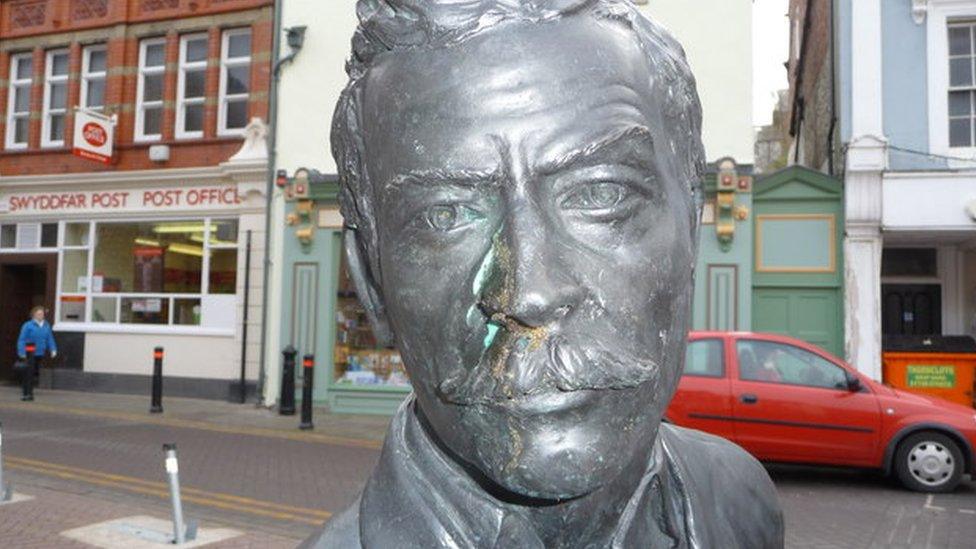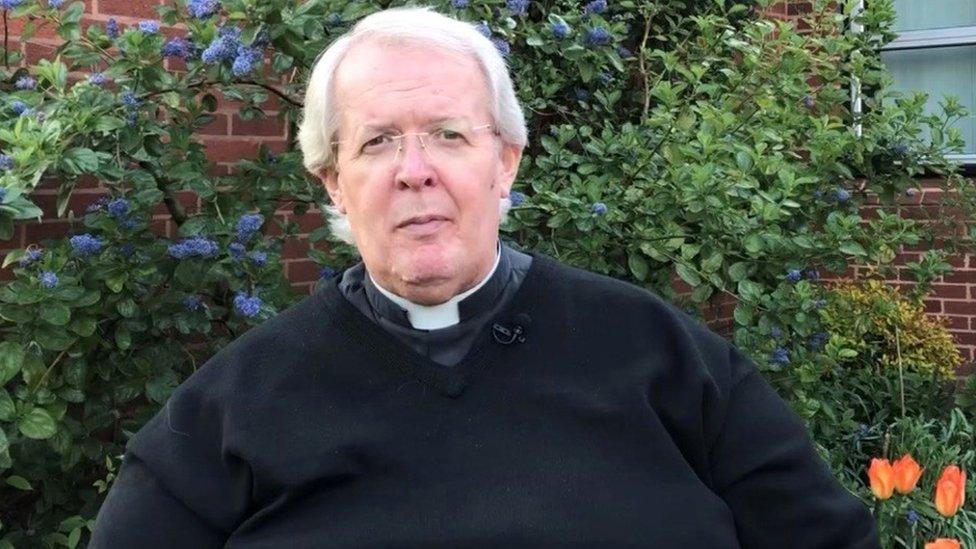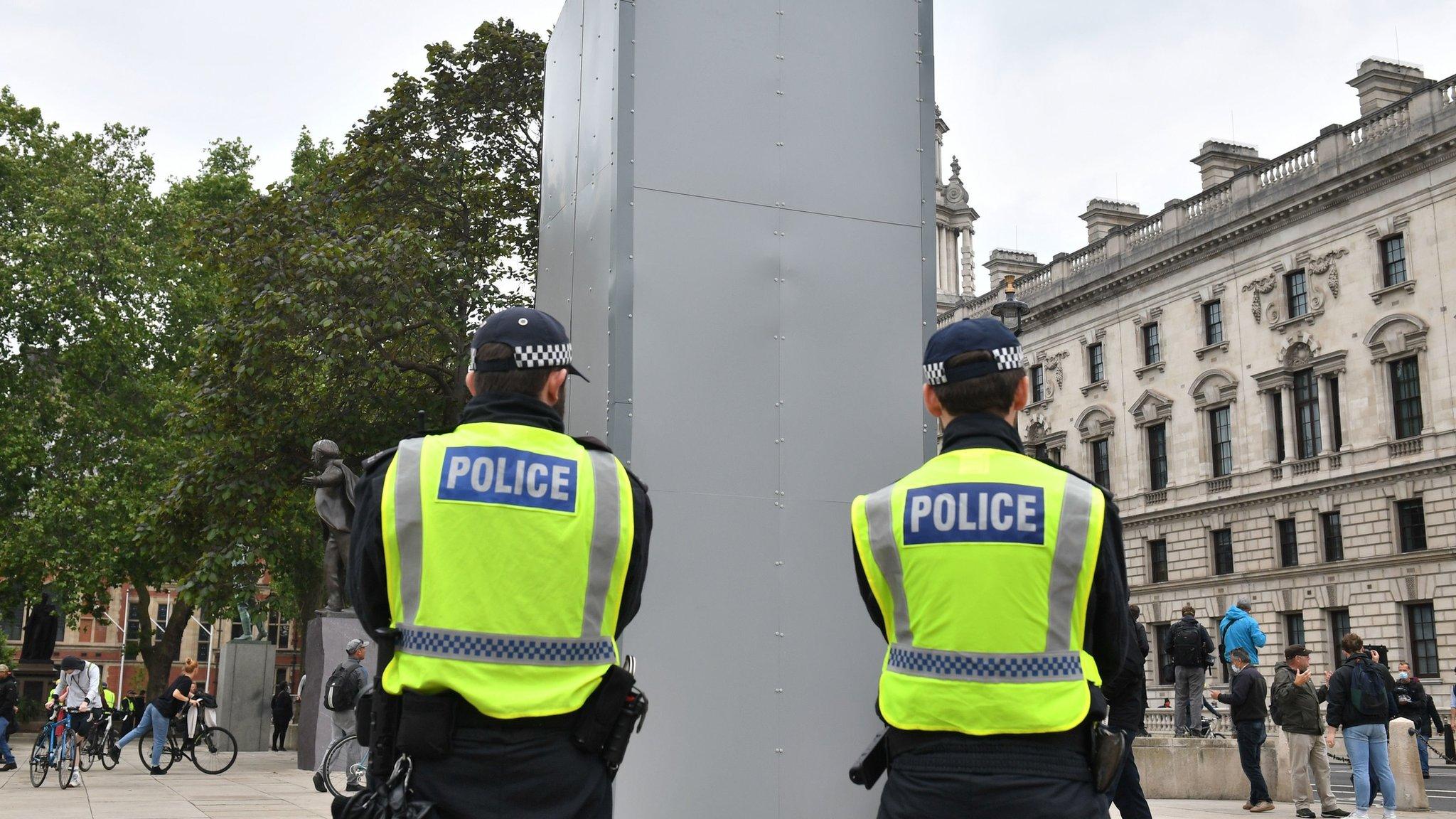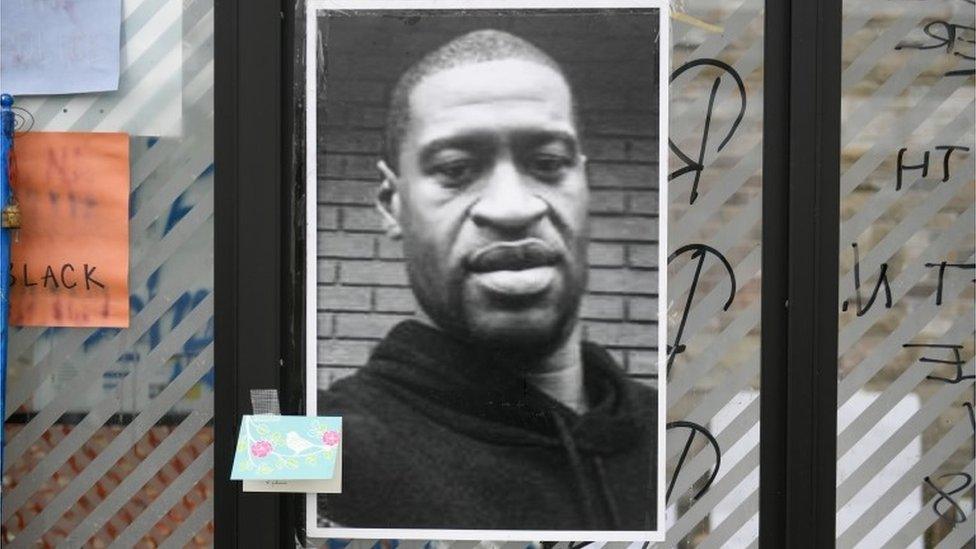Henry Morton Stanley statue row: Explorer 'not racist'
- Published

A statue of Henry Morton Stanley stands in Denbigh town centre
A county councillor responsible for the installation of a statue of explorer Henry Morton Stanley has rejected claims the adventurer was racist.
Denbighshire councillor Gwyneth Kensler said she would never have supported installation of the statue in Denbigh had he been so.
The Bishop of St Asaph has called for its removal, saying Stanley had "little respect for the natives of Africa".
But Cllr Kensler said Stanley "loved Africans".

Councillor Kensler says Stanley "cannot be linked to the slave trade in any way"
In 2010, 50 eminent people, including travel writer Jan Morris and poet Benjamin Zephaniah, signed a letter of protest against the statue, saying his expeditions contributed to the "racist" ideas of the day.
The statue's future will be debated at a specially convened meeting of Denbigh's town council on 24 June.
Removal of another obelisk that celebrates him in St Asaph will be discussed by its city council on the same date.
Recently, Black Lives Matter demonstrators tore down the statue of slave trader Edward Colston in Bristol.
Calls have been made to remove other memorials around the UK that honour people with links to slavery and racism.
It follows protests around the world after George Floyd, an unarmed black man, died in police custody in Minneapolis in the United States.
Speaking to the Local Democracy Reporting Service, Cllr Kensler said: "I have read so many inaccuracies in the current coverage of the removal of the Stanley statue outside Denbigh Library - these need to be addressed.
"Stanley was not a racist; he was sacked by King Leopold II in 1884 because he would not accept Leopold's instructions.

Bishop Gregory Cameron said he wanted the statue removed in solidarity with the Black Lives Matter campaign
She added: "Had Stanley been a racist I certainly would not have worked to establish a statue to him...
"He loved Africans, was vehemently against the slave trade and wrote articles to that effect. He cannot be linked to the slave trade in any way."
Stanley, who was born in Denbigh in 1841, became famous for trekking through African jungle to find Scottish explorer Dr David Livingstone, and greeting him with the famous words: "Dr Livingstone, I presume?"
- Published12 June 2020

- Published5 June 2020

- Published12 June 2020
